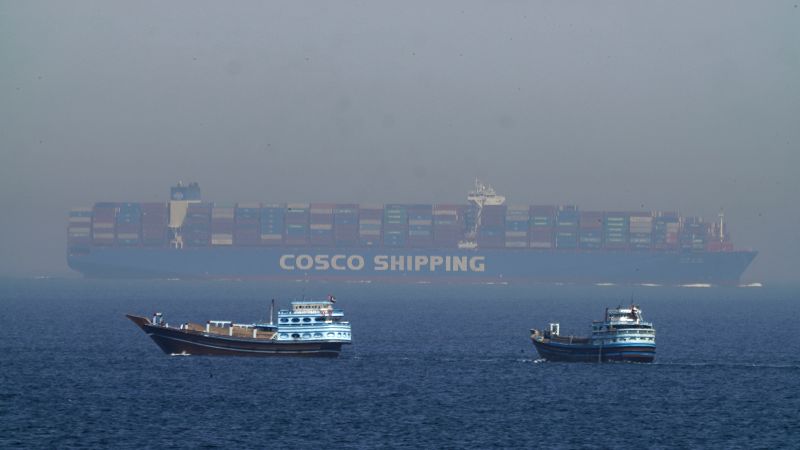The geopolitical tensions surrounding Iran and its strategic control of the Strait of Hormuz have escalated significantly as recent military actions by Israel and the United States have triggered investor anxiety in the global oil market. Although the global oil supply has not faced any major disruptions to this point, the potential for a negative reaction from Iran has surged concerns among traders and analysts alike. This has led to a noteworthy increase in oil futures, witnessing an approximate rise of 10% amid fears that Iran might respond aggressively by hindering shipping routes vital for oil transportation, particularly through the Strait of Hormuz.
The Strait of Hormuz is a crucial maritime corridor linking the oil-rich Persian Gulf to other regions of the world. Spanning a mere 21 miles at its most narrow point, this essential waterway serves as the primary conduit for crude oil shipments, with Iran maintaining control over its northern coastline. The significance of this strait cannot be overstated, as about 20 million barrels of oil traverse it daily, representing nearly one-fifth of the world’s daily oil production according to the U.S. Energy Information Administration (EIA). The agency has identified the Strait of Hormuz as a “critical oil chokepoint,” underscoring its pivotal role in global energy security.
Recent military actions have directly impacted oil prices, with Brent crude—an international oil benchmark—hitting over $80 per barrel for the first time since January, following U.S. airstrikes targeting Iranian nuclear facilities. Such fluctuations in oil prices can instigate broader economic ramifications, as they were relatively stable between $60 and $75 a barrel prior to these developments. Currently, Brent crude hovers around $78.2 per barrel, while West Texas Intermediate (WTI), the U.S. benchmark, stands at $75.06.
The future trajectory of oil prices is largely contingent on Iran’s impending reactions to the ongoing military engagements. Rob Thummel, a senior portfolio manager at Tortoise Capital, projects that any disruption of the sea route under Iranian control could see oil prices surge toward the $100 per barrel mark. The health of the global economy hinges significantly upon the uninterrupted functioning of this strategic strait.
In response to escalating tensions, influential figures in Iran’s government are voicing demands for the closure of the Strait. Notably, Hossein Shariatmadari, a prominent advisor to the Supreme Leader Ayatollah Ali Khamenei, has called for action, asserting that retaliation is warranted following the U.S. strikes on Iranian facilities. Other experts, such as Mohammad Ali Shabani, have suggested that Iran’s geographical prowess over shipping routes places it in a position to significantly impact global oil markets, thereby affecting inflation and economic strategies entrenched in the policies of nations like the United States.
Despite these assertions, some analysts maintain that the likelihood of Iran closing the Strait is marginal. Vandana Hari, the CEO of Vanda Insights, posits that the increased U.S. naval presence in the region serves as both a deterrent and a strategic response mechanism. Asserting that “Iran has much to lose,” she notes that the nation risks alienating its oil-producing neighbors and jeopardizing relations with its primary crude market, China.
The ramifications of a potential closure of the Strait of Hormuz would be particularly severe for Asian economies. Last year, it was estimated that over 80% of crude oil and liquefied natural gas funneled through the strait was directed towards Asian markets, underscoring its vital importance for energy-dependent nations. China is notably the largest consumer of Iranian oil, with figures revealing an intake of approximately 5.4 million barrels per day, while India and South Korea follow suit with 2.1 million and 1.7 million barrels per day, respectively.
In light of these developments, Indian officials are reassuring stakeholders and investors of the country’s resilient energy supply strategy. On social media platform X, Hardeep Singh Puri, India’s Minister for Petroleum and Natural Gas, emphasized that India has diversified its oil procurement channels, ensuring that a significant proportion of its energy imports no longer depend exclusively on the Strait. This diversification strategy is aimed at safeguarding the stability of fuel supplies amidst geopolitical uncertainties, reflecting a proactive approach by essential economies in navigating the complexities of international oil markets.



